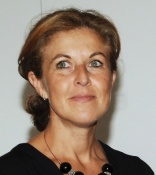Home › magazine › latest news › Augmented reality the next big thing in cleaning?
Augmented reality - the next big thing in cleaning?
7th of February 2017Pokemon Go revolutionised the gaming world when it exploded on to our lives last summer. Could augmented reality now have a similar impact on the cleaning industry? ECJ's Ann Laffeaty talks to Martin Cudzilo, developer of the AR-Check system.
Pokemon Go was a major craze when it was released worldwide in 2016. Suddenly our streets were filled with gamers who would usually be glued to their computer screens but were now fuelled with the burning desire to hunt down Pokemon in their own neighbourhoods.
The game's staggering success was due to augmented reality (AR), a technology that adds a layer of digital information on to the real world. While virtual reality creates a totally artificial environment that can be "inhabited" by the user, augmented reality allows him or her to experience a certain level of technological imagery while remaining firmly on home ground. In terms of Pokemon Go this means that players can actually "see" Pikachu in front of a physical building in their locality via their mobile phone.
Pokemon Go was such a success that an estimated 45 million people played it daily during the game's peak in July 2016. So, could a similar technology be used to revolutionise the cleaning industry?
One person who believes it could is Martin Cudzilo who owns and runs a Frankfurt cleaning company. During his 12 years as a contract cleaning CEO he has come to realise that change is desperately needed in the industry.
"Work in the commercial cleaning sector is typically achieved through manual labour where there is a vast scope for error," he said. "In order to minimise these errors and improve the quality of cleaning, additional staff and organisational efforts are required. But this is time-consuming and leads to high additional costs - and the quality still varies since there are no checks and balances.
"The industry is therefore crying out for a system that can bring improvements and standardisation while also managing all aspects of the cleaning process."
This was the logic that led Cudzilo to experiment with augmented reality. He has now developed a revolutionary new system that can be used in conjunction with smart glasses.
AR-Check is designed to continuously monitor the quality of the cleaner's work to insure a higher level of cleaning. The system records and documents the entire process and projects relevant information to cleaners in real time via their glasses. This includes the correct procedures, tools and chemicals to be used in a specific environment.
AR-Check also highlights those areas that require cleaning by displaying them to the cleaner through a red overlay. Areas that have been cleaned will automatically turn green.
And the system can even be teamed with sensors fitted to tools such as vacuum cleaners, mops and gloves. These sensors will indicate the level of pressure that needs to be applied during cleaning while also keeping track of materials and reordering stock as required.
Designing a state-of-the-art cleaning concept is one thing: persuading cleaners to use it is quite another and Cudzilo concedes there may be some resistance.
"Some cleaners will initially consider AR-Check to be annoying because of its real-time tracking factor," he said. "However, this will mostly apply to operatives for whom working requirements and quality issues are not a high priority.
"Wearing smart glasses will be new, but operating them requires no greater knowledge than when using a smartphone. And the system will be welcomed by many since the worker will be guided and supported step-by-step in whichever language is required." Any commercially-available smart glasses can be used and where cleaners already wear spectacles, customised smart glass lenses can be issued or alternatively the hardware can be attached to the user's own glasses.
Cudzilo believes the technology offers huge scope for improving the working lives of cleaners.
"The augmented reality technology could even provide a fun factor," he said. "For example, AR-Check could incorporate a computer game-like element where little dirt monsters would appear in the style of Pokémon Go. These could then be eliminated via thorough cleaning to increase the cleaner's ‘score'.
"Combining gaming with work could motivate the cleaner to achieve higher levels of cleaning. People can and should enjoy their jobs."
AR-Check was patented in 2014 and Cudzilo hopes to roll it out internationally within two years. "After the prototype has been completed a broad test phase will be carried out in which AR-Check will be intensively tested in different situations," he said. "It is designed to be suitable for all environments but it will be particularly useful in hospitals and other areas where high levels of cleanliness are crucial."
Cudzilo believes the industry cannot afford to ignore the potential of AR-Check. "We simply can't continue to do things the same old way and expect to have better results," he said. "Augmented reality is such a game-changing technology that it will enable systems to be created that can optimise and radically disrupt the cleaning industry.
"I believe AR-Check is the key to managing cleaning over an internet platform. It will make the industry more effective, more productive and easier to manage and the payoff will be quality results for manageable costs."









